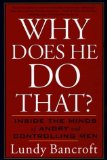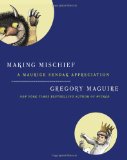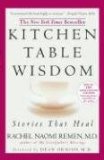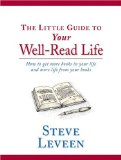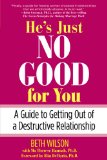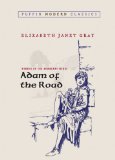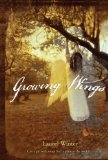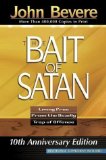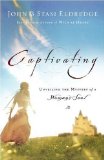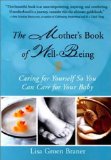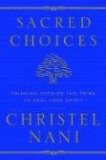Review of Why Does He Do That? by Lundy Bancroft
Inside the Minds of Angry and Controlling Men
by Lundy Bancroft
G. P. Putnam’s Sons, New York, 2002. 408 pages.
Starred Review.
This is a fascinating, informative, and tremendously helpful book. Lundy Bancroft has worked for years with abusive men and their partners. He understands how they think and why they do what they do. He’s seen the same behaviors and patterns come out again and again.
This book communicates his deep understanding of abusive men, clearing up many common myths about domestic abuse. He talks about what a man needs to do in order to change and helps the partner understand how she should respond.
His introduction says it well:
“I have been working with angry and controlling men for fifteen years as a counselor, evaluator, and investigator, and have accumulated a wealth of knowledge from the two thousand or more cases with which I have been involved. I have learned the warning signs of abuse and control that a woman can watch out for early in a relationship. I’ve come to know what a controlling man is really saying, the meaning that is hidden behind his words. I’ve seen clues to recognizing when verbal and emotional aggression are heading toward violence. I’ve found ways to separate out abusive men who are faking change from those who are doing some genuine work on themselves. And I have learned that the problem of abusiveness has surprisingly little to do with how a man feels — my clients actually differ very little from nonabusive men in their emotional experiences — and everything to do with how he thinks. The answers are inside his mind.
“However, as delighted as I am to have had the opportunity to gain this insight, I am not one of the people who most needs it. The people who can best benefit from knowledge about abusers and how they think are women, who can use what I have learned to help themselves recognize when they are being controlled or devalued in a relationship, to find ways to get free of abuse if it is happening, and to know how to avoid getting involved with an abusive man — or a controller or a user — next time. The purpose of this book is to equip women with the ability to protect themselves, physically and psychologically, from angry and controlling men.”
Along the way, he presents answers to twenty-one questions he is commonly asked by women about their abusive partners, as a way of giving them the information they most need to hear.
I like his central goal:
“If your partner’s controlling or devaluing behavior is chronic, you no doubt find yourself thinking about him a great deal of the time, wondering how to please him, how to keep him from straying, or how to get him to change. As a result, you may find that you don’t get much time to think about yourself — except about what is wrong with you in his eyes. Once of my central reasons for writing this book is, ironically, to help you think about him less. I’m hoping that by answering as many questions as possible and clearing away the confusion that abusive behavior creates, I can make it possible for you to escape the trap of preoccupation with your partner, so that you can put yourself — and your children if you are a mother — back in the center of your life where you belong. An angry and controlling man can be like a vacuum cleaner that sucks up a woman’s mind and life, but there are ways to get your life back. The first step is to learn to identify what your partner is doing and why he does it, which is what the pages ahead will illuminate. but when you have finished diving deeply into the abuser’s mind, which this book will enable you to do, it is important to rise back to the surface and from then on try to stay out of the water as much as you can. I don’t mean that you should necessarily leave your partner — that is a complex and highly personal decision that only you can make. But whether you stay or go, the critical decision you can make is to stop letting your partner distort the lens of your life, always forcing his way into the center of the picture. You deserve to have your life be about you; you are worth it.”
At the beginning of the book he explains what abuse is. It’s surprisingly hard to spot in your own relationship, since the partner never starts out by being abusive.
“One of the obstacles to recognizing chronic mistreatment in relationships is that most abusive men simply don’t seem like abusers. They have many good qualities, including times of kindness, warmth, and humor, especially in the early period of a relationship. an abuser’s friends may think the world of him. He may have a successful work life and have no problems with drugs or alcohol. He may simply not fit anyone’s image of a cruel or intimidating person. So when a woman feels her relationship spinning out of control, it is unlikely to occur to her that her partner is an abuser.
“The symptoms of abuse are there, and the woman usually sees them: the escalating frequency of put-downs. Early generosity turning more and more to selfishness. Verbal explosions when he is irritated or when he doesn’t get his way. Her grievances constantly turned around on her, so that everything is her own fault. His growing attitude that he knows what is good for her better than she does. And, in many relationships, a mounting sense of fear or intimidation. But the woman also sees that her partner is a human being who can be caring and affectionate at times, and she loves him. She wants to figure out why he gets so upset, so that she can help him break his pattern of ups and downs. She gets drawn into the complexities of his inner world, trying to uncover clues, moving pieces around in an attempt to solve an elaborate puzzle.”
A partner being abused commonly accepts all that blame when it begins. Lundy Bancroft’s words are comforting:
“Part of how the abuser escapes confronting himself is by convincing you that you are the cause of his behavior, or that you at least share the blame. But abuse is not a product of bad relationship dynamics, and you cannot make things better by changing your own behavior or by attempting to manage your partner better. Abuse is a problem that lies entirely within the abuser.”
“The abuser creates confusion because he has to. He can’t control and intimidate you, he can’t recruit people around him to take his side, he can’t keep escaping the consequences of his actions, unless he can throw everyone off the track. When the world catches on to the abuser, his power begins to melt away. So we are going to travel behind the abuser’s mask to the heart of his problem. This journey is critical to the health and healing of abused women and their children, for once you grasp how your partner’s mind works, you can begin reclaiming control of your own life. Unmasking the abuser also does him a favor, because he will not confront — and overcome — his highly destructive problem as long as he can remain hidden.”
Some good points the author makes about abuse, based on years of working with abusers are:
“Abuse grows from attitudes and values, not feelings. The roots are ownership, the trunk is entitlement, and the branches are control.
“Abuse and respect are opposites. Abusers cannot change unless they overcome their core of disrespect toward their partners.
“Abusers are far more conscious of what they are doing than they appear to be. However, even their less-conscious behaviors are driven by their core attitudes.
“Abusers are unwilling to be nonabusive, not unable. They do not want to give up power and control.
“You are not crazy. Trust your perceptions of how your abusive partner treats you and thinks about you.”
Here are some good points from the chapter on how abuse begins:
“You do not cause your partner’s slide into abusiveness, and you cannot stop it by figuring out what is bothering him or by increasing your ability to meet his needs. Emotional upset and unmet needs have little to do with abusiveness.
“Certain behaviors and attitudes are definitional of abuse, such as ridiculing your complaints of mistreatment, physically intimidating you, or sexually assaulting you. If any of these is present, abuse has begun.
“Abused women aren’t ‘codependent.’ It is abusers, not their partners, who create abusive relationships.”
Then he talks about how abuse looks in everyday lives. These are some of the points:
“For the most part, an abusive man uses verbally aggressive tactics in an argument to discredit your statements and silence you. In short, he wants to avoid having to deal seriously with your perspective in the conflict.
“Arguments that seem to spin out of control ‘for no reason’ actually are usually being used by the abusive man to achieve certain goals, although he may not always be conscious of his own motives. His actions and statements make far more sense than they appear to.”
“Be cautious, and seek out assistance. You don’t deserve to live like this, and you don’t have to. Try to block his words out of your mind and believe in yourself. You can do it.”
In the chapter toward the end on abusers who change, the author advises:
“You cannot, I am sorry to say, get an abuser to work on himself by pleading, soothing, gently leading, getting friends to persuade him, or using any other nonconfrontational method. I have watched hundreds of women attempt such an approach without success. The way you can help him change is to demand that he do so, and settle for nothing less….
“Those abusive men who make lasting changes are the ones who do so because they realize how badly they are hurting their partners and children — in other words, because they learn to care about what is good for others in the family and develop empathy, instead of caring only about themselves.”
There’s a lot more in this book. I like some of the advice to the abused woman toward the end:
“If you give yourself a long enough taste of life without being cut down all the time, you may reach a point where you find yourself thinking, Go back to that? For what? Maybe I’ll never stop loving him, but at least I can love him from a distance where he can’t hurt me.…
“The only time an abusive man will deal with his issues enough to become someone you can live with is when you prove to him, and to yourself, that you are capable of living without him. And once you succeed in doing so, you may very well decide that living without him is what you would rather do. Keep an open mind, and make sure you are not clipping your own wings on top of the clipping that he has given them.”
Can you tell that I’m trying to cram all the good advice and important information into this review? There are many common myths about abusive situations in our culture, and this book cuts through the mythology and shows you the truth. If you suspect you might be in an abusive relationship, or if you have a friend or relative in an abusive relationship, I highly recommend reading this book.
Find this review on Sonderbooks at: www.sonderbooks.com/Nonfiction/why_does_he_do_that.html
Disclosure: I am an Amazon Affiliate, and will earn a small percentage if you order a book on Amazon after clicking through from my site.
